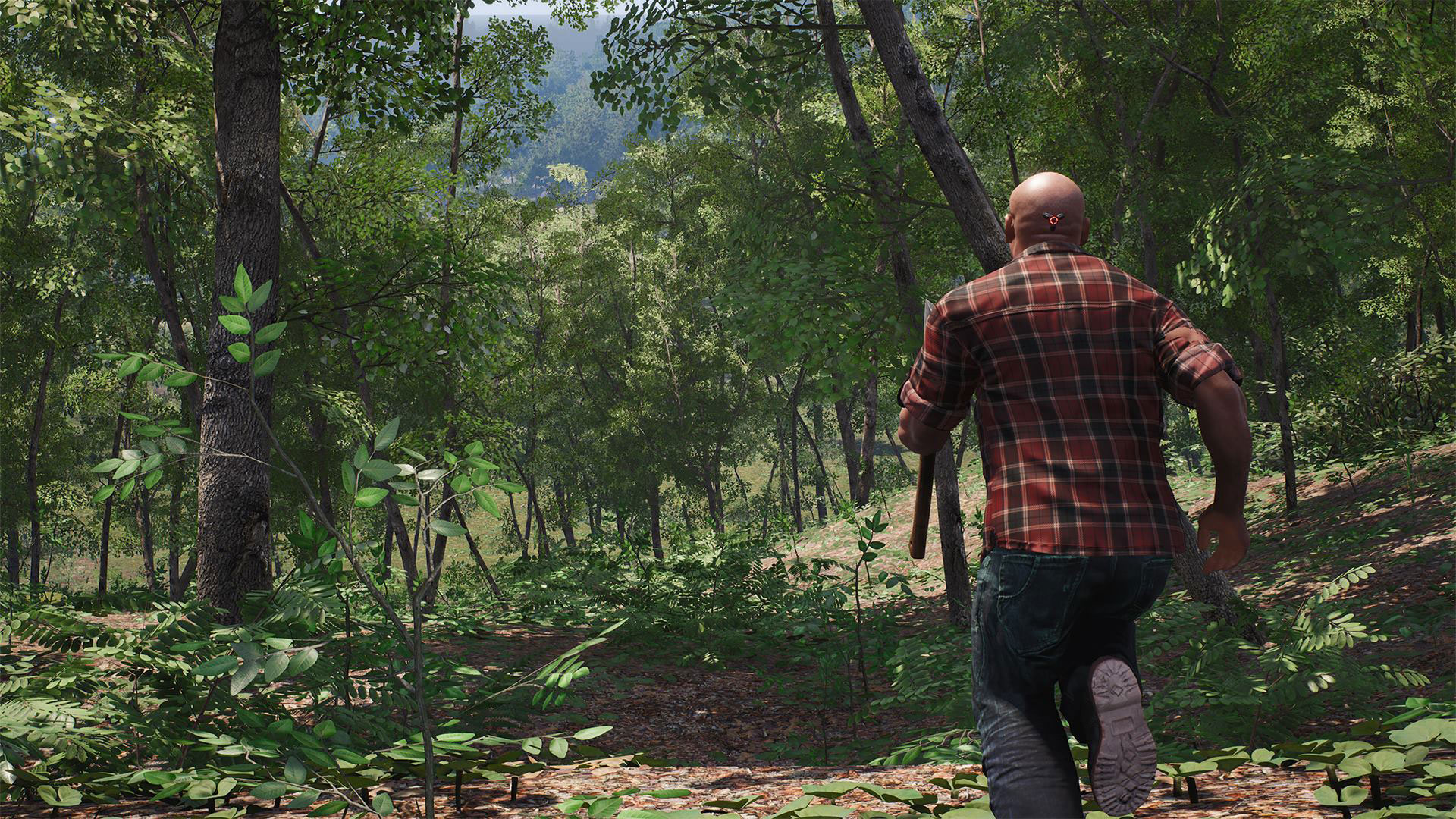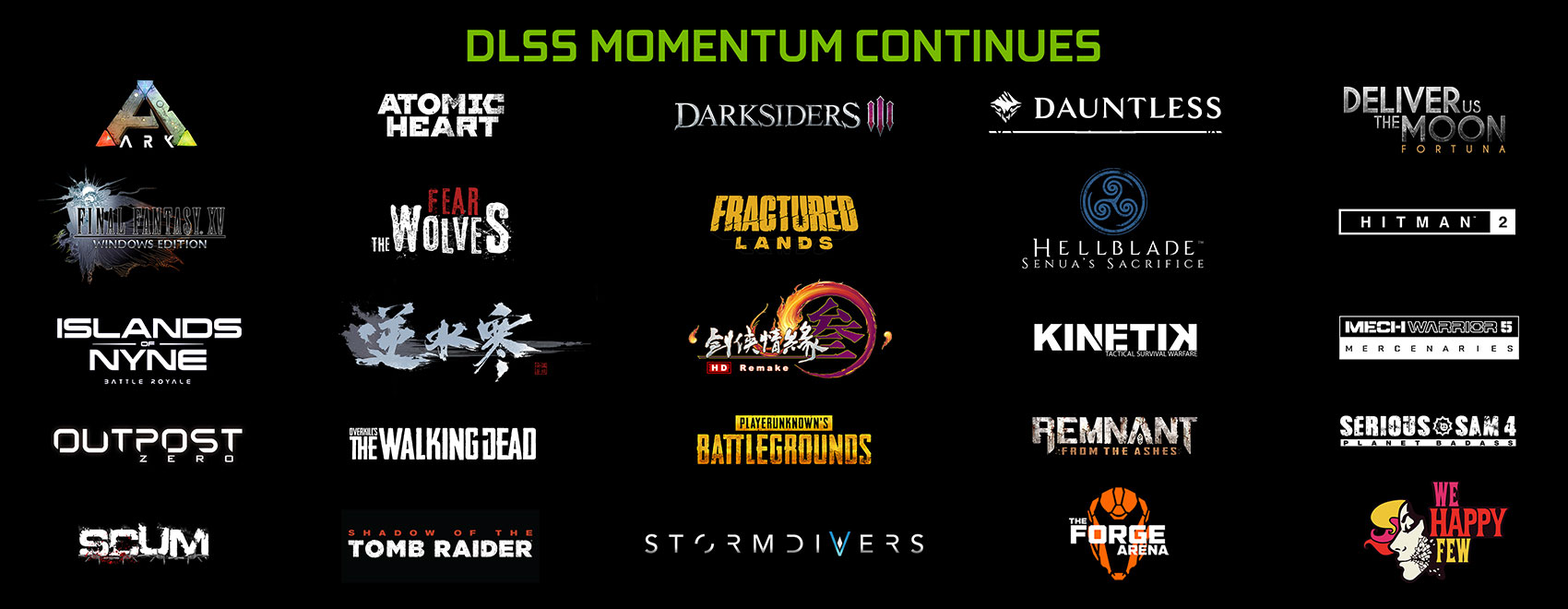Nvidia DLSS gains traction with nine new games, including Scum and Darksiders III
The list of games supporting DLSS now exceeds two dozen.

Much of the attention surrounding Nvidia's GeForce RTX graphics cards is on real-time ray tracing, which promises to deliver better reflections and visual effects compared to rasterization alone. However, that's only part of Nvidia's "RTX technology." Another component is Deep Learning Super Sampling (DLSS), which is a new AI-based anti-aliasing algorithm that can offer improved image quality compared to other AA algorithms like Temporal Anti-Aliasing (TAA). Nvidia previously announced that the 16 games would support DLSS. That number has now grown to 25.
The newly announced DLSS games include the following:
- Darksiders III from Gunfire Games / THQ Nordic
- Deliver Us The Moon: Fortuna from KeokeN Interactive
- Fear The Wolves from Vostok Games / Focus Home Interactive
- Hellblade: Senua's Sacrifice from Ninja Theory
- KINETIK from Hero Machine Studios
- Outpost Zero from Symmetric Games / tinyBuild Games
- Overkill's The Walking Dead from Overkill Software / Starbreeze Studios
- Scum from Gamepires / Devolver Digital
- Stormdivers from Housemarque
They join an existing lineup that includes Ark: Survival Evolved, Final Fantasy XV: Windows Edition, Hitman 2, PUBG, Serious Sam 4: Planet Badass, We Happy Few, and several others.

"If you’re unfamiliar with DLSS, this new RTX technology uses the power of deep learning and AI to train the GPU to render crisp images, while running up to 2x faster than previous generation GPUs using conventional anti-aliasing techniques. You’ll be hearing much more about DLSS, NVIDIA RTX ray tracing, and the other features of GeForce RTX graphics cards in the coming weeks," Nvidia says.
DLSS is designed to provide real-time enhancements like the removal of jaggies. In its base form, it combines resolution upscaling with anti-aliasing, while a higher quality mode (DLSS 2X) focuses solely on anti-aliasing. While this could theoretically be done on regular CUDA cores, the Tensor cores in RTX cards are needed to obtain desirable results in real-time at 60 frames per second or higher—Tensor cores provide around eight times more computational power than the CUDA cores.
We'll have to wait and see how it all shakes out. In the meantime, don't be surprised if more games and developers get added to the list.
Keep up to date with the most important stories and the best deals, as picked by the PC Gamer team.
Paul has been playing PC games and raking his knuckles on computer hardware since the Commodore 64. He does not have any tattoos, but thinks it would be cool to get one that reads LOAD"*",8,1. In his off time, he rides motorcycles and wrestles alligators (only one of those is true).


